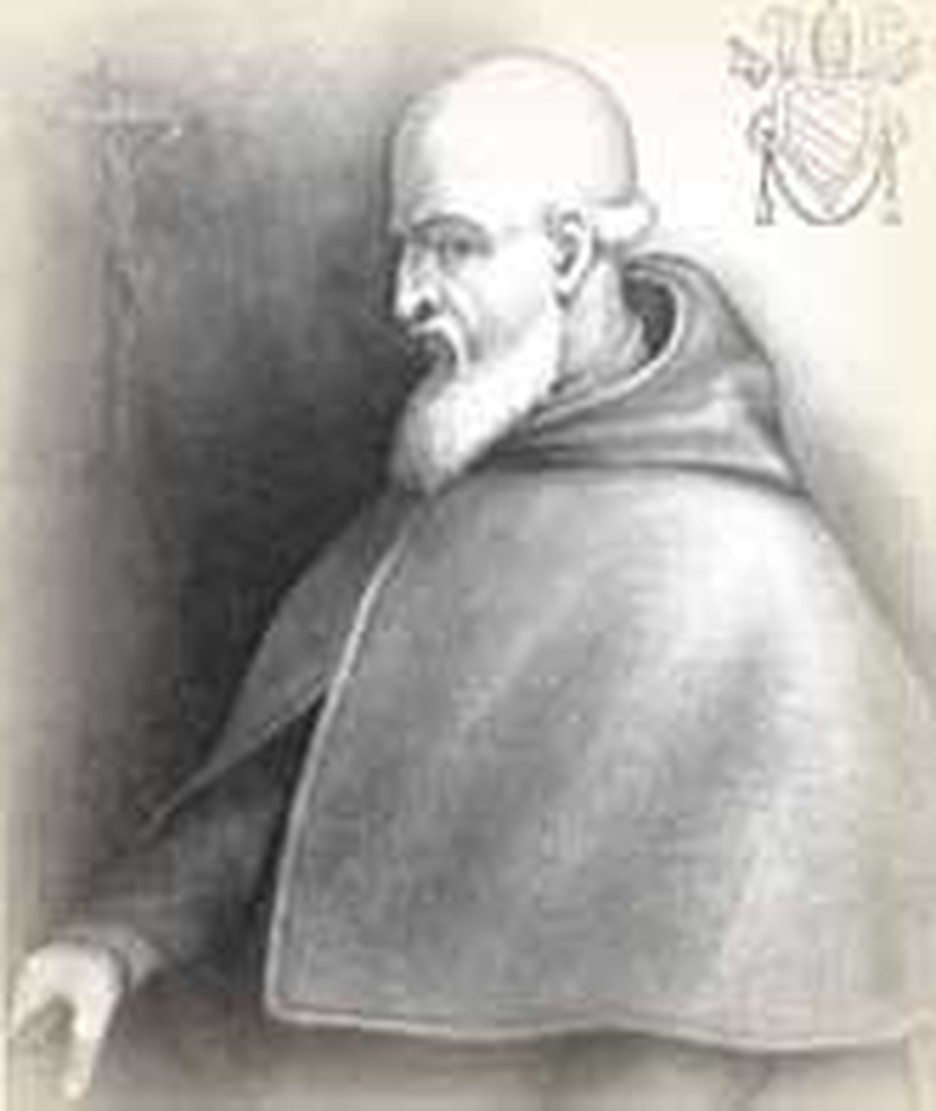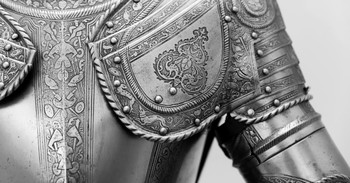
During the Reformation, England broke away from the Roman Church. Mary Tudor briefly reestablished the connection, but when Elizabeth came to the throne, she saw that it was politically expedient (and perhaps morally preferable) to uphold the reformed church and did so. Like her father before her, she headed the English church through an act of Parliament, although her private chapel services remained more Catholic than Protestant.
On this day, April 27, 1570, Pope Pius V issued a bull against her. He claimed that there was no salvation outside the Roman Church and that the pope alone was successor to Peter and head of the earthly church. The ungodly had grown in power and "Elizabeth, the pretended queen of England and the servant of crime, has assisted in this."
The pope went on to excommunicate Elizabeth. "...we do out of the fullness of our apostolic power declare the foresaid Elizabeth to be a heretic and favorer of heretics, and her adherents in the matters aforesaid to have incurred the sentence of excommunication and to be cut off from the unity of the body of Christ."
In his fourth point, he said "And moreover (we declare) her to be deprived of her pretended title to the aforesaid crown and of all lordship, dignity and privilege whatsoever."
He forbade all nobles, subjects and people to obey Elizabeth on pain of excommunication. This, of course, placed England's Catholics in a trying position. While most were loyal to the throne, some used the papal statement as an excuse to plot against Elizabeth for the purpose of replacing her with a Catholic. Elizabeth cracked down on these opponents with vigor. Innocent Catholics suffered alongside the guilty.
The bull concluded with the words, "Given at St. Peter's at Rome, on 27 April 1570 of the Incarnation; in the fifth year of our pontificate.
Elizabeth survived this blast and maintained high popular approval during much of her reign. She is admired by historians as one of England's greatest monarchs, and according to Thomas Fuller, was also admired by Pope Sixtus the Fifth.
Bibliography:
- "Elizabeth I." The Oxford Dictionary of the Christian Church. Edited by F. L. Cross and E. A. Livingstone. Oxford, 1997.
- Fuller, Thomas. "The Life of Queen Elizabeth." The Holy State and the Profane State, Volume II. New York: Columbia University Press, 1938; p. 312ff.
- Lataste, T. "Pope St. Pius V." The Catholic Encyclopedia. New York: Robert Appleton, 1914.
- Neale, J. E. Queen Elizabeth I. Garden City, New York: Doubleday, 1957.
- "Pope Pius V's Bull Against Elizabeth (1570)." http://tudorhistory.org/primary/papalbull.html.
- Various encyclopedia and internet articles on Elizabeth, Pius V and the excommunication.
Last updated May, 2007.


